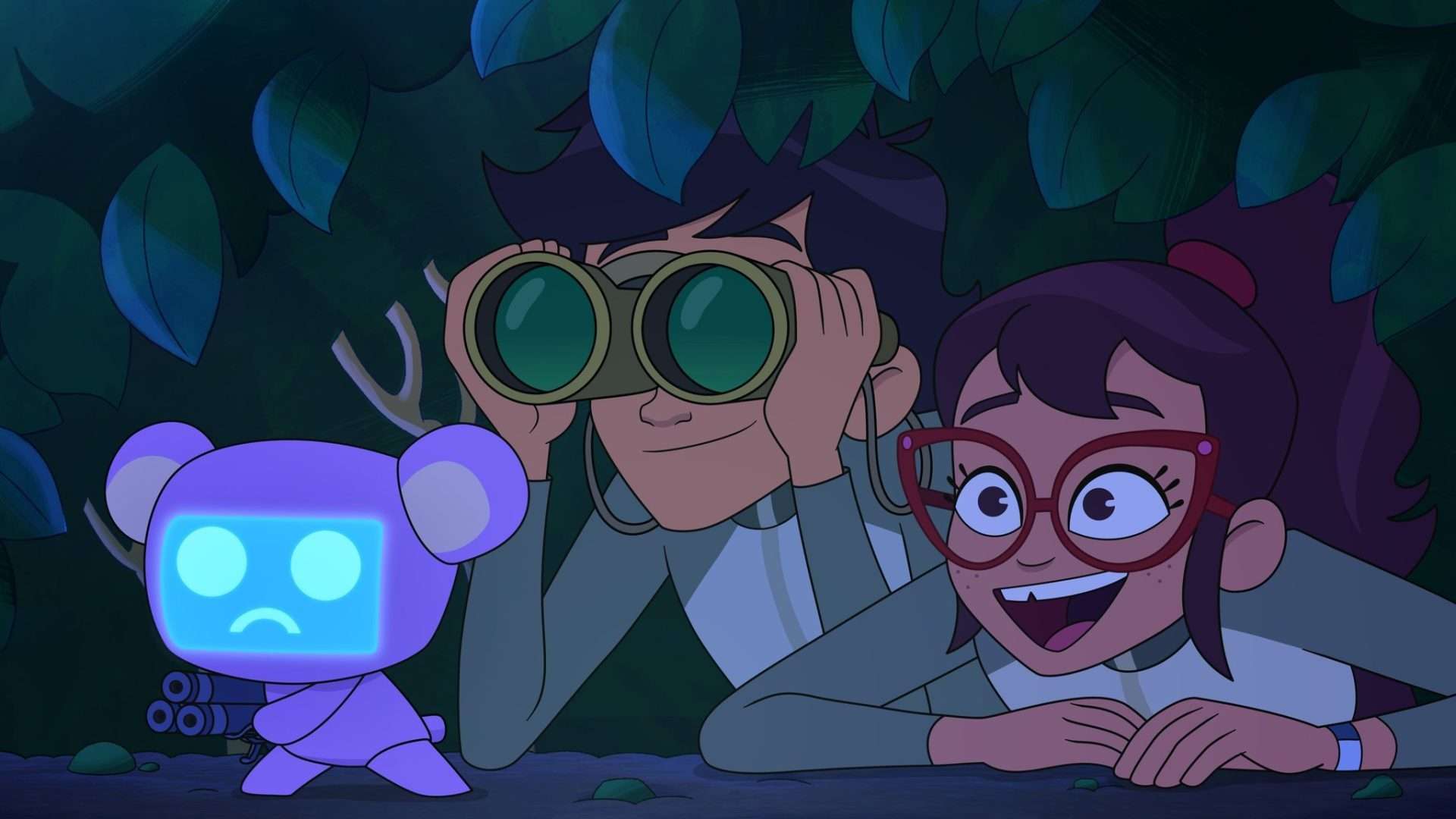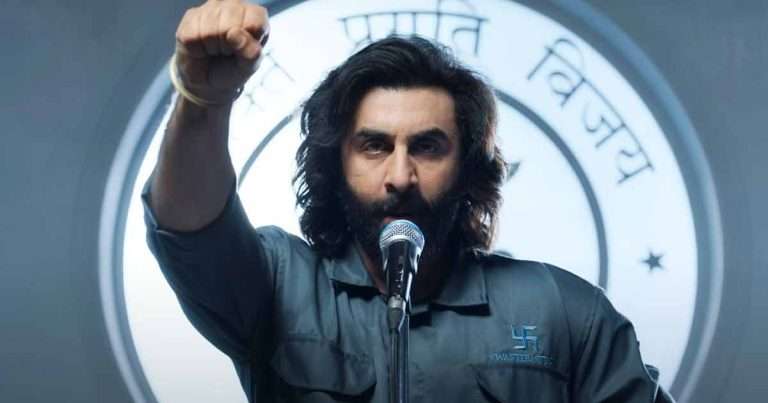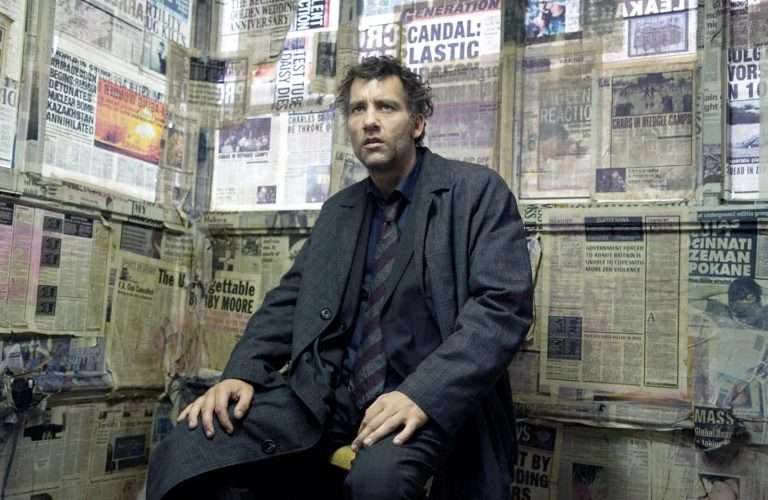Disney’s ongoing animated sci-fi/comedy show Hailey’s On It (2023), which premiered last month, is about a 14-year-old girl who, since first grade, has a book called “My Big List of Things I’m Totally Gonna Do.” Hailey has never done any tasks on the list because she tends to overthink when trying new things. However, when she got visited by a scientist from the future, she learned that she must start accomplishing the lists to save the world.
According to the creators Nick Stanton and Devin Bunje, the core idea of the program is that anyone can achieve marvelous things as soon as they overcome their self-doubt. The story focuses on tracking the growth of an insecure person in her mission (source: movieweb’s Exclusive: Hailey’s On It Creators Discuss Ordinary Characters with Extraordinary Circumstances by: Cento). Apparently, the creators wanted an optimistic look for the show (source: CBR’s Hailey’s On It!). Creators Devin Bunje and Nick Stanton Bring Bill & Ted Vibes to Disney Animation by Zachary) which is why it doesn’t present scenes with deep dramatic self-reflection from its main character. But if Hailey is real, she probably has a negative self-image for being too apprehensive. That was before she met The Professor.
Her tendency to overthink, as seen in episode 1, where she presents all the adverse outcomes that will likely happen if she joins the bird-house building competition, is rooted in her desire to achieve perfection because one of the causes of overthinking is perfectionism. According to Masters Counselling, perfectionism is a type of unrealistic expectation, and it is typical for humans to think of unrealistic expectations – said Dr. Morris, a clinical psychologist in Maryland (source: Psych Central’s How to Relinquish Unrealistic Expectations: 4 Tips by: Tartakovsky)
Although it’s normal to wish that weakness doesn’t exist, perfection will not guarantee happiness because human connection will probably perish, as people can do everything on their own. Hence, they may feel that conversing with someone is unnecessary. Dr. Etherson, a researcher at the University of Glasgow, says that, based on research having a trait of perfectionism makes it difficult for the person to feel interested in building a relationship with others. One reason is the person’s “perceived inability to please others.” (source: Psychology Today).
To see oneself as invincible seems to lack the reason to fall in love. At least, that’s what Dr. Broogard appears to mean in his Psychology Today article: One of the reasons people fall in love is their capability to fulfill each other’s needs. Basically, one can receive their needs by asking, and they sometimes have to be vulnerable to do that. Vulnerability is associated with social support (source: Psych Central’s The Good Kind of Vulnerability by Marissa Moore). Hence, sharing one’s limitations with trusted people can foster their assistance. The Professor, an enigmatic and high-energy scientist, was able to show the vulnerable side of the world to Hailey. It’s why Hailey agreed to do the mission.
“Wait, am I like important?” Hailey said when she learned that her list is crucial. Her delighted reaction seems to break her negative self-view, and with each new episode, the negative slowly turns into a positive. The professor informing Hailey’s role in saving the world may be analogous to human experiences wherein a person suddenly asks an insecure individual for help. Suppose the troubled person agrees to help and receive words of gratitude; they’ll surely lighten up since helping others makes us happy (source: Time Magazine’s The Secret to Happiness Is Helping Others by Santi).
The person who verbalized their limitation by asking the insecure individual a question might have accidentally shaken off the inadequate feeling of a person as the individual was able to use their strengths. Dr. Davis, an expert on well-being technology, said that focusing on your strengths is one of the weapons against feelings of inadequacy (source: Psychology Today’s How to Overcome Feeling Inadequate by: Dr. Davis.) Generally, the point here is that people’s limitations might significantly lift each other from their mountain of insecurities. To learn that one’s limitations have helped someone to feel adequate may make that person happy because, again, helping others makes us happy. Receiving help makes life bearable. While the giver learns their strength, the receiver becomes motivated to face the challenges because they now have the privilege to relax.

One of the minor scenes in the Splatter of the Bands episode is the audience scene, wherein Scott is very comfortable shouting and throwing tomatoes because he is not a contestant. Perhaps singing is one of his weaknesses, yet he doesn’t seem to mind it because he’s focusing on his strength, which is throwing tomatoes. In fact, he and his sister were voted as best tomato chuckers by veggie weekly and fruit weekly. Sometimes accepting one’s limitation is peaceful, as it lessens the person’s responsibility. Also, the individual may be able to appreciate their strengths more because they’re not dwelling on what they don’t have.
However, that still depends on the situation. Some weaknesses must be overcome because one can miss specific opportunities they desire by letting their shortcomings get in the way, leading to regret – which is not very peaceful. Hailey would probably not be able to have fun in Splatter of the Bands if she had held on to perfection. Scott is also the same; despite being clumsy, he still chooses to help Hailey on her mission.
In the Cosplayed episode, Scott shrieks so hard after hearing from Beta that they need to get Chan Yee’s autograph. It seems that it’s finally sinking into Scott how lucky he is for helping his best friend to achieve her to-do list – as Scott is able to join the fun. However, there’s also a possibility that he’s starting to feel proud of his improvement throughout his journey with Hailey to save the world. With every episode passing by, Hailey and Scott are reaping the rewards of their bravery by facing their weakness. It is evident by the positive growth in their mindset when encountering difficulties.
“Not this time. Panicking won’t save us.” That’s what Hailey said when she, Scott, Kristine, and a.c were trapped inside the escape room. Hailey’s “Not this time” proves that she’s aware of her weakness when there is a challenge in front of her, so she doesn’t let it control her. Because of that, she was able to think of the solutions. Organizational psychologist Dr. Lipkin said, “If you neglect your weaknesses, they’ll eventually overshadow your strengths. Your weakness may become your Achilles heel.” (source: Forbes’ You Need To Know Your Weaknesses To Boost Your Success by Dr. Lipkin.) Like Hailey, her lack of confidence overpowers her advantage to be Scott’s girlfriend.
The apprehensive protagonist of Hailey’s On It – who continuously overcomes her weaknesses to save the world- inspires people with the same disposition. Yet, in reality, weaknesses are not easy to handle, so it’s okay to ask for help to improve them. Doing that preserves communication. Also, the helper might receive a break from their feelings of inadequacy. At the same time, the inquirer’s burden lessens, not only because they have assistance but also because they can avoid the adverse impact of ignoring one’s weaknesses.







